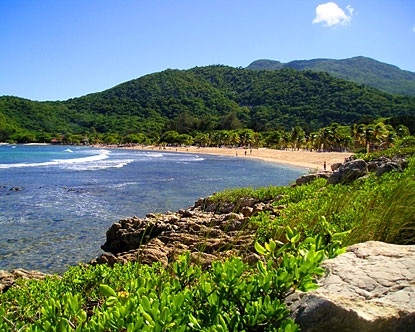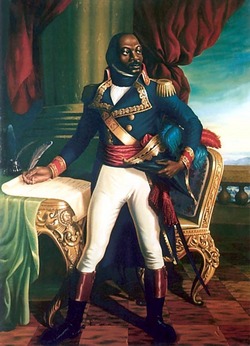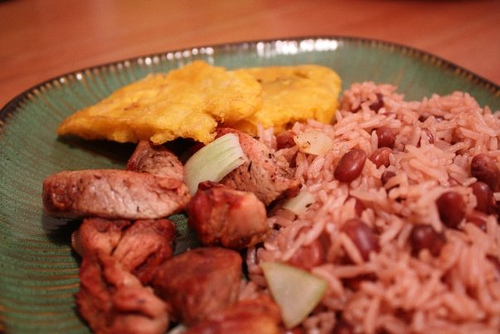 Frederick Douglass wanted nothing more than for African-Americans to be free from slavery. For that reason, the self-educated and self-liberated slave looked to a small island country as his inspiration. Douglass hailed the islanders as a "a brave and industrious people."
Frederick Douglass wanted nothing more than for African-Americans to be free from slavery. For that reason, the self-educated and self-liberated slave looked to a small island country as his inspiration. Douglass hailed the islanders as a "a brave and industrious people."
He deeply admired the first Black nation for its revolt against a European colonial power. They were "men of negro race," he contended, "who loved liberty more than life." The former slaves built "a country among the Foremost and Civilized Nations on Earth." Douglass applauded the revolution as "one of the most wonderful events in the history of [his] eventful century... in the history of mankind."
Frederick Douglass spoke of the Republic of Haiti-a beautiful, mountainous and colorful nation-state.
A few years ago, Pulitzer Prize-winning author, Tracy Kidder captivated the world with his biography of Paul Farmer, a larger-than-life yet lowly American doctor who founded the non-profit Partners in Health and largely helped eradicate tuberculosis from Haiti. A world-renowned contagious disease expert, Farmer adopted Haiti as his second home and has for decades worked to turn around the island's health system. After the author Tracy Kidder penned Farmer's life story, he chose Mountain Beyond Mountains as the work's title.
In Haitian Kreyol, there's a saying that "behind a mountain, there are many mountains." In other words, behind one problem, there are many other problems.
So it is for a country that has suffered tremendously. This small island-much tinier than my home state of Florida-was the first to free itself from colonial bondage, yet has dealt with many other forms of bondage.
Genocides by neighboring Dominican Republic.
More than 70 dictators.
 Deadly coup de' états.
Deadly coup de' états.
Four hurricanes in one year.
Floods that killed some 900 people.
A devastating earthquake.
As President Obama stated recenty, the people of Haiti are no strangers to hardship. Yet, our sisters and brothers in Haiti must be defined by much more than their sufferings.
They are talented-like writer Edwidge Danticat and musician Wyclef Jean.
They are zestful-as seen in their vivid, tropical paintings and woodwork.
They are prayer-warriors and activists-like the revolutionary Toussaint L'Ouverture and the late Miami-based liberation theologian, Gerard Jean-Juste.
They are doctors, lawyers and professionals like my own friends-Venette Pierre and Oswald Alphonse.
A trip to Miami's Lejeune Flea Market or to the city of Immokalee's farmlands will show you that Haitians are diligent workers who know how to hustle.
And just a sliver of their traditional cuisine-Griot, Legume and Soup Joumou-will help you appreciate their customs.
 Family, our Haitian brothers and sisters in Christ need us to be culturally-sensitive as they rebuild after last week's earthquake. Haiti doesn't want pity; it wants respect. Let's forego the "that poor country" comments. Let's not subconsciously blame or judge them for the calamity, as I've witnessed some prominent American Christian leaders do. It's hard to fathom that mature believers are stopping just short of saying, "They got what's coming to them."
Family, our Haitian brothers and sisters in Christ need us to be culturally-sensitive as they rebuild after last week's earthquake. Haiti doesn't want pity; it wants respect. Let's forego the "that poor country" comments. Let's not subconsciously blame or judge them for the calamity, as I've witnessed some prominent American Christian leaders do. It's hard to fathom that mature believers are stopping just short of saying, "They got what's coming to them."
Let's stop analyzing other people's mountains.
 Ana Guthrie is a super cool chick with a heart for God and love for youth culture. She doubles as a not-so-naughty librarian and instructor at Florida Memorial University in Miami, Florida.
Ana Guthrie is a super cool chick with a heart for God and love for youth culture. She doubles as a not-so-naughty librarian and instructor at Florida Memorial University in Miami, Florida.
